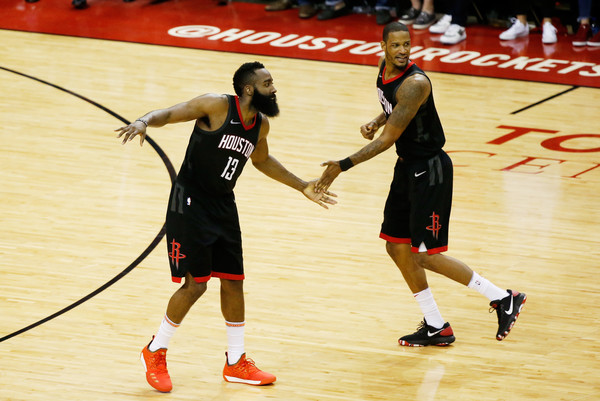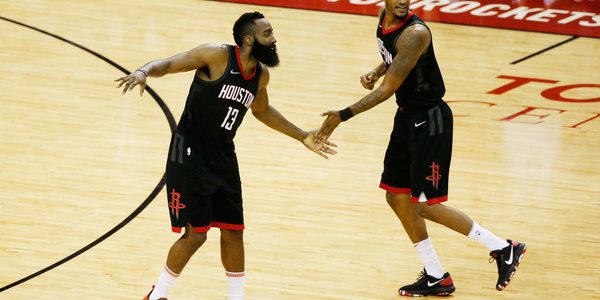It’s hard to put into words how important it was for the NBA that the Houston Rockets beat the Golden State Warriors. We now have a 1-1 series heading back to the Bay Area, with actual weaknesses the defending champions showed, along with the usual injury conspiracy theories that arise whenever Stephen Curry has a bad game.
In game 1 of the series, which the Warriors won comfortably in their first Game 1 on the road since Steve Kerr took over as head coach, the main stat that stood out was how few turnovers Golden State had. Just 3. And the Rockets defense stopped making them feel comfortable, forcing 15 turnovers, 5 of them by Kevin Durant.
Curry, who shot just 7-for-19 from the field and 1-for-8 from beyond the arc to finish with 16 points, spoke about the Warriors needing more discipline and aggressiveness on defense, compared to their game 2 showing, in which they gave up 127 points, allowing 16 three-pointers on 38.1%.
The Warriors also need more discipline on offense. The teams switched roles, kind of, in game 2: The Rockets, when Chris Paul led the offense (more on that later), moved the ball quickly, always adding an extra pass and quickly finding open looks or favorable mismatches, most of them taking advantage of how bad a defender Curry is when he doesn’t have help. The Warriors, shaken and perhaps surprised by how the Rockets attacked, reacted by forgetting that their brand of offense is unstoppable when they keep at it. Suddenly, Iso ball or hero ball was what Golden State was playing. Kevin Durant scored 38 points, but he had a team worst -25.
The Rockets didn’t pull a complete 180. Yes, Paul (16 points, 6 assists) was much more involved in bringing the ball up the floor and starting offensive sequences, but James Harden still had plenty of opportunities to dribble and attack the rim on his own. 27 points, 10 rebounds, 3-for-15 from three. His best shots came when he was on the finishing end of a passing sequence, not at the beginning of it, which meant a solo act the Warriors don’t have a problem defending.
Trevor Ariza (19 points), P.J. Tucker (22 points) and especially Eric Gordon (27 points) were the main benefactors from Paul seeing more of the ball. Houston’s offense is at its best when the Morey-ball principles are executed. Tucker didn’t try anything fancy. Neither did Ariza. Either shoot an easy shot or swing the ball to an open man. Gordon had a bit more freedom to try complicated things, but when you hit six 3-pointers, you’re allowed to try different things.
As the series heads to Oakland, both teams have now struck a blow that gives the other side a much better idea of what it should do next. Besides individual tweaks and corrections (like Curry’s shot, which whenever it faulters theories about injured ankles surface), the team that adjusts and implements that idea the quickest will take control of the series.
It’s still a Warriors series to lose, but not as much as it was two days ago. We suddenly have regained hope in a potential classic.

